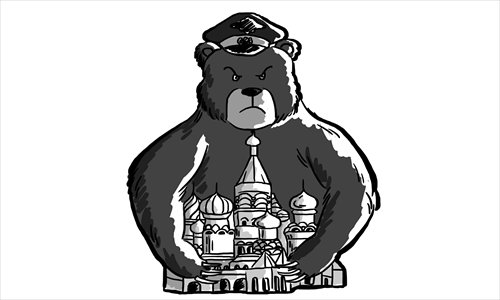Russia’s history leaves it with tough ethnic dilemmas, unlike China

I went to Russia recently, impressed by Russia's vast territory and abundant resources. I could feel the strong national pride and dignity of Russians, but also observed the continuing ethnic conflicts in Russia.
When the Soviet Union disintegrated, Russia, Ukraine and Belarus, three of the dominant regions within the Soviet Union, were the first to sign the agreement on creation of Commonwealth of Independent States. In fact, these countries expected to become prosperous after independence since they were no longer burdened with the other ethnicities.
However, unlike Russia, the Chinese modern national problems stemmed from rule by the Manchu, a minority people, during the Qing Dynasty (1644-1911). During the early days of modern China, equality, unity and mutual prosperity were spiritually achieved after overthrowing the ruling Manchu.
Pre-revolutionary Russia did not have a long-term process of national integration. So it was against their wishes of the Russian people when their leaders planned to create a "Soviet ethnic group" to cover up the history of national oppression.
The current policy of the Russian Federation is aimed at strengthening the Russian ethnic group. But the Russian people would rather choose to lose those "alien" commonwealths than affect the purity and integrity of the Russian people.
Russians believe that the Russian people are unique, neither European nor Asian. Although the development of Russia is now in a relatively low stage, Russians are reserving their strength for possible future conflicts with others, including NATO. They desperately need this chance to prove once again that Russia is the best.
If we say that the glory of the Russian people lies in the history of conquest and territorial expansion, the crisis of Russia nowadays results from the "dilution" of those conquered ethnic groups and the heavy burden of territorial expansion it shoulders.
While Russians have obvious differences from other ethnic groups in their racial and linguistic characteristics, the Han people are not significantly different from the majority of China's ethnic minorities. Apart from a small number of northern minorities, Han language and culture are commonly and universally spread in China thanks to the absolute advantage in population.
The tolerance of the Han group is unique, without apparent exclusiveness in religion and race. With a distinctive civilization system, Han culture resembles a giant sponge. To some extent, there is no pure Han people, but only the history of the Chinese nation.
Russia is a religious nation. After officially-enforced atheism under the Soviet regime, the Orthodox Church quickly restored its major role in people's daily life. Lack of faith accounted for religion quickly coming to play its old role in people's life after the disintegration of the Soviet Union.
Compared with the Russians, the Han are not a religious people. Chinese understanding of nature in ancient times reached "a harmony between man and nature," so it is impossible to set up a universal religion. Some people now attribute China's social problems to the absence of religion, which is a fallacy.
To conclude, we can say the ethnic problems facing Russia are entirely different to those facing China, in origin, cause, current status, and solution. By comparing the obvious differences, we can be clearly aware of the advantages and disadvantages of each people and know there are differences attached to the characteristics and nature of ethnic issues in the two countries.
The author is a professor at Minzu University of China. opinion@globaltimes.com.cn